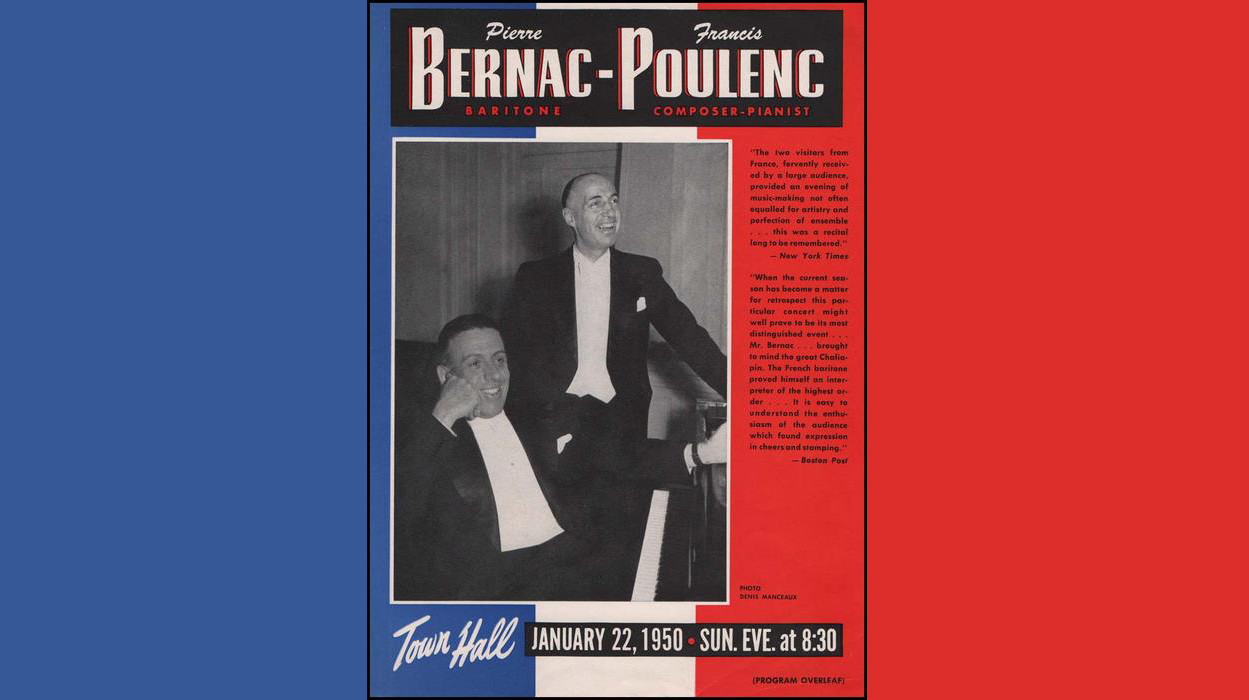Transnational Localism and Music
Transnational Localism and Music after the two World Wars: the case of Francis Poulenc
Taking Francis Poulenc as an example of a French composer who experienced war twice, this project looks at his creative responses to both wars.

It prioritises the musical and cultural significance of localised urban, suburban and rural places in shaping a distinctive musical and national identity, an identity that was recognised by his contemporaries as representing a generation; it scrutinises his international activities in pursuit of cultural and artistic cooperation, collaboration and exchange.
Project Leaders
Dr Nicolas Southon (Marie Skłodowska-Curie Fellow, 2015-17)
Professor Barbara Kelly
Francis Poulenc belonged to the 1890s generation, a generation whose education was cut short by WWI, who often participated on the periphery of this first global conflict but experienced loss; they were the youth of the 1920s who helped to shape the image of the apparently carefree and secular Années folles, which masked the trauma, search for spirituality, quest for formal order and the realities of world financial crisis; they were reaching middle age by the time of WWII and responded to the conflict through their professional activities and creative output. This generation was fully involved in the reconstruction of Europe after WWII.
This interdisciplinary project builds on the recent scholarship on Poulenc and his contemporaries. With some notable exceptions [Poulenc: Echo and Source. Selected Correspondence 1915–1963, translated and ed. Sidney Buckland, Gollancz, 1991; Keith W. Daniel, Francis Poulenc: His Artistic Development and Musical Life, UMI Research Press, 1982], Poulenc received little attention until the 1990s, when Myriam Chimènes published a substantial collection of his letters in the original French in 1999 [Poulenc: Correspondance, 1910-1963, ed. M. Chimènes, Fayard, 1994]. This was followed by further source work and critical reinterpretations around the time of the centenary in the late 1990s, e.g. Lucie Kayas’s edition of his radio shows [Poulenc, A bâtons rompus, écrits radiophoniques, ed. L. Kayas, Actes sud, 1999], Sidney Buckland and Myriam Chimènes’s edited collection [S. Buckland and M. Chimènes eds., Music, Art and Literature, Ashgate, 1999], and Carl B. Schmidt’s catalogue and detailed biography [C. B. Schmidt, The Music of Francis Poulenc: A Catalogue, OUP, 1996; Entrancing Music, a Documented Biography of Francis Poulenc, Pendragon Press, 2001].
You can read more about the project here.

